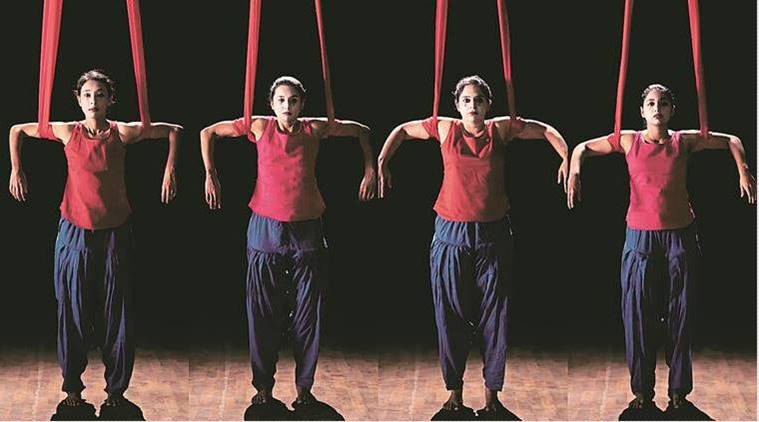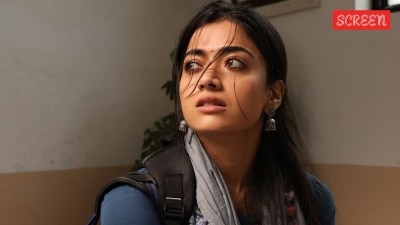Building the Narrative
Chennai-based filmmaker Vaishnavi Sundar work of over two years bore fruit in September last week when she announced her 110-minute documentary. The film will be screened at Chennai’s Goethe Institut on November 3.
 A still from But What Was She Wearing?
A still from But What Was She Wearing?
Much before the #MeToo movement rocked the American film industry last year, before taking the Indian film and media industry by storm in the recent weeks, Chennai-based filmmaker Vaishnavi Sundar had started work on her 110-minute documentary on sexual harassment at workplace. Her hard labour of over two years, the time she spent on the production, bore fruit in September last week, when she announced on Facebook that the film is now complete. It has not had a public screening yet, but Sundar is hoping to take it across the country to sensitise people and initiate conversations.
Titled “But What Was She Wearing?” the 110-minute film begins with commonplace statements being thrown at the audience — from “This is not harassment, this is just guys hanging out and speaking up” to “This is all in your head…” and “This girl will make a complaint and this guy will lose his job”. Sharing their thoughts and experiences in the subsequent scenes are activist Archanaa Sekar, activist-lawyer Amba Gauri, journalist Dhanya Rajendran, writer Sharanya Manivannan and actors Priya Malik and Parvathy, among others. “The issue concerns a significant percentage of urban, middle-class, office-going women. People think that since legislation is in place, there won’t be harassment. The fact is that the legislation isn’t all encompassing. It does not impact all working women, specifically those in the unorganised sector,” says Sundar, who made the film with an all-women crew and crowdfunded the project. “When people shared their stories with me, the struggle felt worth the effort, but I won’t recommend crowdfunding for the weak-hearted,” she says.
The filmmaker was certain about how she wanted to approach the subject. “From the very beginning, I had decided that I would place women against a black background, to signify that all women are coming from the same place, their caste or economic strata does not matter. As women, we’re all standing together,” she says. She also wanted them to speak directly to the camera. “I wasn’t going to record anyone who wished to be anonymous — not to say that being anonymous is wrong. People often say women don’t come forward, so I made sure these women came forward and shared their experiences,” she says, 32. Her previous outings as a filmmaker have been Pava, The Catalyst and Unearthing The Treasures of Ariyalur, and runs a production company – Lime Soda Films. Sundar has also been active in the theatre scene of Chennai, and is vocal about women issues on the ground and online.
One of the primary issues that are raised in the film is how the definition of workplace and harassers are limited. For instance, women working in schools face harassment by parents of students, but schools find it difficult to penalise them. Rajendran shares how such incidents were commonplace during reporting, to the extent she had them categorised as ‘okay ones’ and ‘bad ones’. A doctor shares how people ogled at a fellow doctor when she was giving a cardiac massage to a dying man. A research associate shares how the definition of workplace in law is limited, as her work takes her to various corners of the country. Activist Divya Bharti brought to the fore how a women manual scavenger is made to do hard labour during night hours and is still paid less than men.
Sundar also speaks to men in the film. Comedians Varun Grover and Sanjay Rajoura, among others, talk about the “bro code”, which doesn’t make them take sexual harassment and misconduct seriously. There are women who narrate tales of trauma dealing with the “due process”. “I was very clear that this is not going to be a sob story. I don’t want women to come and cry in my film. I wanted these women to speak facts, and call out the government, policy makers and legislatures who claim that we’re protected,” she says, adding that dealing with stories on a daily basis triggered her own trauma.
Sundar has also created a unique forum of ‘Women Making Films’ through which she hopes to initiate conversations and promote the work of women filmmakers. “I’ve had so many women tell me if it’s a female cinematographer the light boys behave in a certain manner. The same crew works differently when a man is in charge. I’ve also heard cases where a female director has been exploited in terms of money. Also, I feel, we don’t give opportunities to women filmmakers to falter, only when you falter is when you’ll chisel your skill,” she says.


- 01
- 02
- 03
- 04
- 05

























